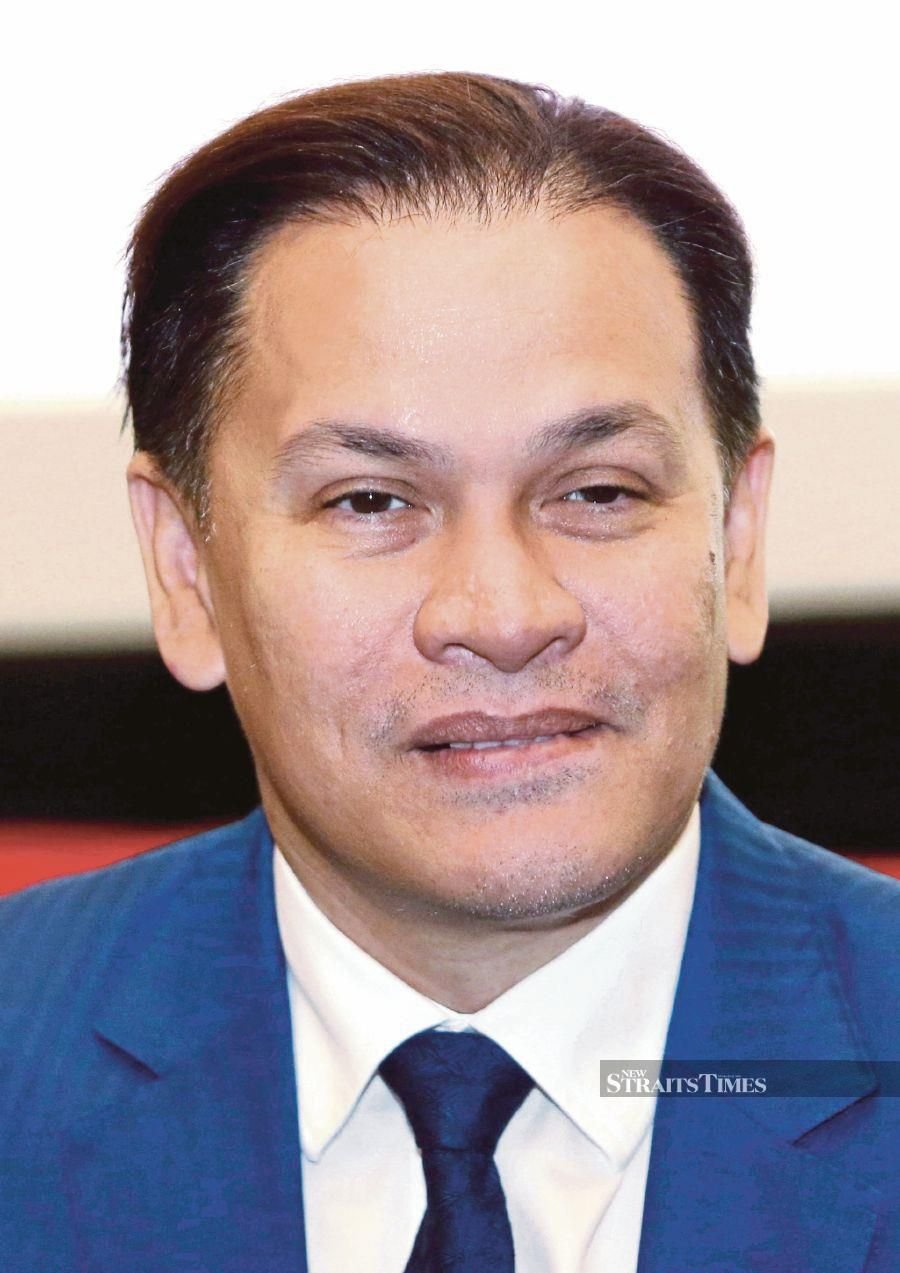
KUALA LUMPUR:KEY players of the local music industry have lauded the recent statement by Prime Minister Tun Dr Mahathir Mohamad that the government will look into setting up a body to protect and develop the local music industry.
Saying it is a ‘step in the right direction’, artiste associations, as well as veteran artistes and musicians, believe the government is ‘finally doing something’ to address their long-held grievances, which include lop-sided royalty payments.
Datuk Norman Abdul Halim. NSTP/HALIMATON SAADIAH SULAIMAN
Among the individuals who hailed Dr Mahathir’s announcement were Yayasan Kebajikan Artis Tanah Air chairman Datuk Irwan Shah Abdullah (DJ Dave), Persatuan Karyawan Malaysia president Datuk Freddie Fernandez and veteran singer Datuk Zainal Abidin.
While Dr Mahathir’s statement may have come a little too late, 46 years after Tan Sri P. Ramlee died a pauper, Malaysians who love and value their homegrown musical talents should welcome it, for any move to better the lives of the country’s long-struggling singers and musicians is long overdue recognition.
Gone are the days where musicians and singers were merely ‘entertainers’.
Malaysians today are more appreciative of the performing arts, and they have realised over the years that the creative industry plays a key role in national development.
As they often say these days, a country that does not appreciate its arts and heritage will ‘always lack a soul’.
Over the last few decades, a number of Malaysian artistes have gone global and stamped the country’s name on the world music map.
Datuk Zainalabidin, Datuk Sheila Majid, Yuna, Pop Shuvit and pop queen Datuk Seri Siti Nurhaliza are widely respected entertainers with fans around the world.
Beyond the glitz and glamour of the music world, however, many recording artistes and musicians actually suffer in silence.
They have long faced problems getting the full amount of royalties for their works, and there appears to be lack of ‘teeth’ on the part of the authorities to uphold their rights.
What musicians and artistes need most is protection, via the law, from individuals who purportedly collect royalties on their behalf yet scoop large chunks of these royalties for themselves.
As Dr Mahathir rightly pointed out, this may have been possible due to existing intellectual property laws which were inadequate to protect industry members. Consequently, he has promised that the government would do its best to strengthen existing laws to ensure that musicians were duly rewarded for their work.
Having a National Music Corporation, with a structure determined by industry members, is just the mechanism local musicians and artistes need to ensure that their rights and interests are safeguarded.
However, it should be a transparent and accountable body, whose members ought to include heads of artiste associations and veteran artistes, who have contributed much to the industry.
Setting up the National Music Corporation is in line with Dr Mahathir’s Shared Prosperity Vision, where no citizen is left out from a share of the country’s wealth.
Just as the National Film Development Corporation (Finas), which Dr Mahathir helped form in the mid-1970s has helped improve the lives of actors and filmmakers, the National Music Corporation, it is hoped, will do the same for musicians and singers.
Dr Mahathir has urged industry members to diversify their income sources, which were ‘not steady enough’, with some having to depend on invites for shows.
Such advice here is timely, too, because artistes can still depend on side-ventures, such as setting up their own restaurants and boutiques. In fact, it is possible for them to earn a lot more and even becoming millionaires through these efforts.
KRU Studios managing director Datuk Norman Abdul Halim, in commending Dr Mahathir, said the formation of an entity to develop the music industry was proposed a few years ago, and if it became a reality, this would boost the development of the music industry.
‘However, to avoid a serious overlap of functions, it is best that Finas is transformed into an entity to cover all aspects of the creative content industry. This will save costs and increase efficiency, as most films, animations and documentaries will use some form of music. It is also faster to implement as it requires amendment of the Finas Act rather than the setting up a new entity,’ he said.
Should Finas and the National Music Corporation be merged as a single body as suggested by Norman?
Perhaps so, as a single body can reduce bureaucracy, the bane of an efficient government.
But either way, government corporations that regulate the wellbeing of the arts and entertainment industry are a welcome move.






